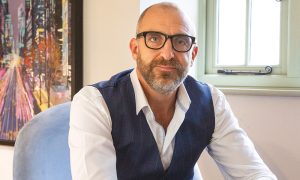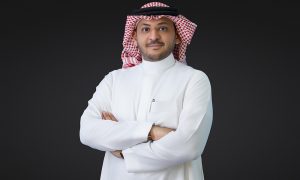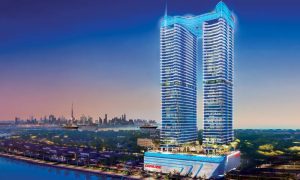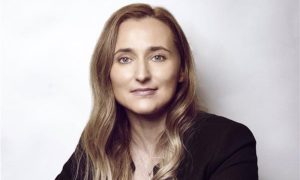A driving force
Gavin Davids interviews the head of Bauer Machinery and finds a company eager to push on and break new ground
As a young man, Dieter Stetter, always wanted to discover the world, but unfortunately for him, it had already been found, so he settled for helping build it instead. In a career that has spanned decades, Stetter has helped oversee Bauer’s operations in places as far flung as North Africa and the Far East, turning the German piling manufacturer into a truly global player.
In an interview with CMME, the managing director and chairman of Bauer tells us about the lessons he’s learned from his time in Asia and how he intends to bring them to bear on the region.
Having started out in Saudi Arabia as a young trainee, Stetter moved to China in 1984, where he remained till 2008, overseeing operations in that region. With the experience he’s garnered there, he’s well placed to judge the impact that region is going to have on the global construction market.
“In Germany, we have dual education systems. We have the standard universities, and then we have the University of Applied Sciences, which is more practical. In this study, you have two practical semesters where you go overseas to work,” he explains, outlining how he started out on his path.
“In my first overseas semester I went to Saudi Arabia, where I ended up working with a road construction crew. This was where I got the ‘overseas bug’, so to speak,” he reminisces, adding: “From that time onwards, I only wanted to go overseas, so when I completed my studies and applied for jobs, for each one I asked, “How long before I could go overseas?” Some said three years, others said five, but at Bauer they said: That depends on you.”
So with the decision made for him, Stetter threw himself into the job and within six months found himself in North Africa, working on projects in Libya and Algeria, before moving to the Far East in 1984.
Having been around when modern development of the Middle East was in its infancy, Stetter is impressed by the rate of progress that’s taken place since.
“Even while not being here, I observed the big boom happening here and how people were queuing up for construction machinery. I think our (Bauer’s) largest order was 25 machines in one single order, (this was) because some companies felt that they had ‘missed the boat’ and they came to start a very big company. Unfortunately, some of them did this in 2006 and 2007, and of course, that was too late,” he says. “There was a lot of pain after that for many companies and the equipment was redeployed in other areas, but despite that, I think the market here is still a very good market.”
Having seen it all before in the 1997 Asian Financial Crisis, Stetter says that companies can learn a lot from what manufacturers did and didn’t do back then.
“There were European manufacturers who just closed their offices and (went home). At the time, we were struggling very hard and fortunately, we hired some of the very good people who had been laid off by the contractors and we developed a very decent business out of it,” he says.
“Customers have told us that they would never buy equipment from another company because they left them alone during the hard times,” he chuckles, adding that he thinks that same could be true in the GCC region. Furthermore, he points out that the market in the UAE is chock-full of machinery that’s just lying there; ready to be rolled out at a moment’s notice. This offers companies a tantalising opportunity, he says.
“Especially in the UAE, there’s a lot of equipment available that is slumbering in somebody’s yard. All this equipment can be mobilised to satisfy initial demand (anywhere in the GCC).”
However, he does caution that certain countries, such as Saudi Arabia, could be difficult to work in given the unique working environment there. As a result, he urges contractors to be cautious while entering the market, and points out that if they haven’t dealt in Saudi Arabia before, then perhaps the grass isn’t always greener.
“I would say that there is some consolidation happening and that the market in the region has very big potential. We are looking at places like Iraq, where I would say there is unlimited potential, provided the security issues can be brought under control.”
This diversification of business is another lesson Stetter has learned from his time in China, and as a result, he has been part of a shift in focus to the oil and gas business, which has seen Bauer develop higher standard oil and gas rigs.
“I would say that initially, this market was initiated to some extent, by what is called the ‘large European geothermal market’, which till now, we’re still waiting for it to develop. There are a lot of geothermal plants in Europe, and initially, our deep drilling machinery was more focused on this, but since the market in Europe is moving too slowly, we’re now redeploying this method to the oil and gas business,” he explains. “We have rigs with a total load of 450t which is able to drill maybe 6,000 or 7,000m.”
However, with the main focus on Bauer Machinery being foundation engineering, Stetter says that there have been significant changes recently in the way the company does business, as it strives to keep up with the competition from the Chinese supply lines.
“The competition in the foundation market is growing, there are a lot of Chinese competitors, but compared to what we offer as a company, looking at our range of products, I would say that while we face a lot of competition, there is a lot of specialised equipment that is not produced in China yet.”
As a result, Bauer took the decision to split their product range. While the company used to produce what it termed as ‘universal rigs’ (rigs that allow customers to drill holes in a variety of ways and with a number of attachments, up to seven or eight methods), three years ago it split its product range into ‘premium’ and ‘value’ lines.
“The traditional line was the premium line while the value line basically corresponds with a single operational method,” Stetter explains.
To keep prices down and offer customers the same value as their Chinese competitors, Bauer decided to manufacture their equipment in China, using the same materials, but bringing in its own expertise.
“We have to fight on this basis, so I would say that the most important thing is to have a presence in China as a manufacturer. You have to fight this house to house fight every day, to know what it means.”
“If you just experience the Chinese competition from Europe, you don’t know what you’re doing. When people say that ‘this equipment is rubbish or no good’, I think it’s a dream. I wouldn’t say that they’ve reached our standards, but the Chinese are working very hard and I think sometimes they have an advantage to us Europeans, in that they listen when a customer says something. We tend to respond and tell the customer where he’s wrong, so I think we have to take them seriously,” Stetter says ominously.
But where he says Bauer does have the advantage is in their specialised equipment which is designed according to project specifications, and as such, is not profitable enough for the Chinese to focus on.
“We can produce three units in ten years and that is certainly nothing a Chinese manufacturer is interested in looking into. They want to produce a minimum quantity of 100, a maximum of 10,000, figures like that.”
With the opening of the new office/warehouse in the Dubai Airport Free Zone, Stetter hopes that all these revamped approaches can all be tied together and come to fruition. The intention is that the Dubai warehouse will be a staging point to ship equipment out to the neighbouring countries as and when they’re needed.
“As I said, we make some machinery in China, so some customers may order these machines, while we also make tools in Malaysia. So while the big stuff is always order based and we bring it directly to the location, as far as spare parts are concerned, the idea is to basically equip this store properly and try and do all the daily business out of Dubai,” he outlines, adding that the idea is to reduce delivery times as much as possible, so as to ensure customers have minimal delays on their projects.
This business plan brings Stetter back full circle to where he sees things coming back to normal after a period of difficulty in the region.
The UAE market has proved to be especially fruitful for the company, thanks to the presence of several major projects in both Abu Dhabi and Dubai.
“You could say that we’re working on the biggest project in Dubai. This is the Grand Habtoor, where we have two machines,” he said. In addition, the company has also worked on projects such as the Yasat Ali Island Lighthouse, where it sunk 25 piles of 750mm diameter in water 24m deep.
Bauer has also worked on a pedestrian underpass that was built under a main Abu Dhabi road. For this project, it helped secure a secant pile wall, and provided capping beams and anchors. A soldier pile wall with stiffening struts was also installed in the south portal, the company said.
“We’re the only manufacturer in Dubai where we work the subsidiary directly. This makes us even stronger and our market penetration is even higher while we can act immediately,” Stetter explained.
KSA is also a big market for Bauer, he reiterated, with the likes of the Haramain Railway project between Mekkah and Medina a major source of income for the company. In addition, he said that the company is pushing for more projects in the Holy City as it aims to make its mark in the Kingdom through its representative, Zahid Tractors. Through its sister company, Bauer Construction, the firm is supplying machines to the iconic Kingdom Tower, scheduled to be the tallest tower in the world when completed.
The golden goose in the region is Iraq, he says, revealing that Bauer has begun planning for when the market opens and an the security situation eases: “Unfortunately, it’s still a second hand market at the moment. The big issue is still security. Especially for European companies providing services out of Europe, it has certain limitations, even for our company. We have travel policies where if you have warnings from the embassy, you have to have special measures in place before you send people into the ‘zone’.”
However, he points out that Europe needs to move quickly into the market as Turkish competitors have already begun heavy penetration into Iraq.
“With wealth comes peace, and eventually, we hope that the economy will provide the foundation for everyone to be happy. Certainly, there’s a hell of a lot of reconstruction to be done, and I would say that it’s a very promising market for the future.”


























